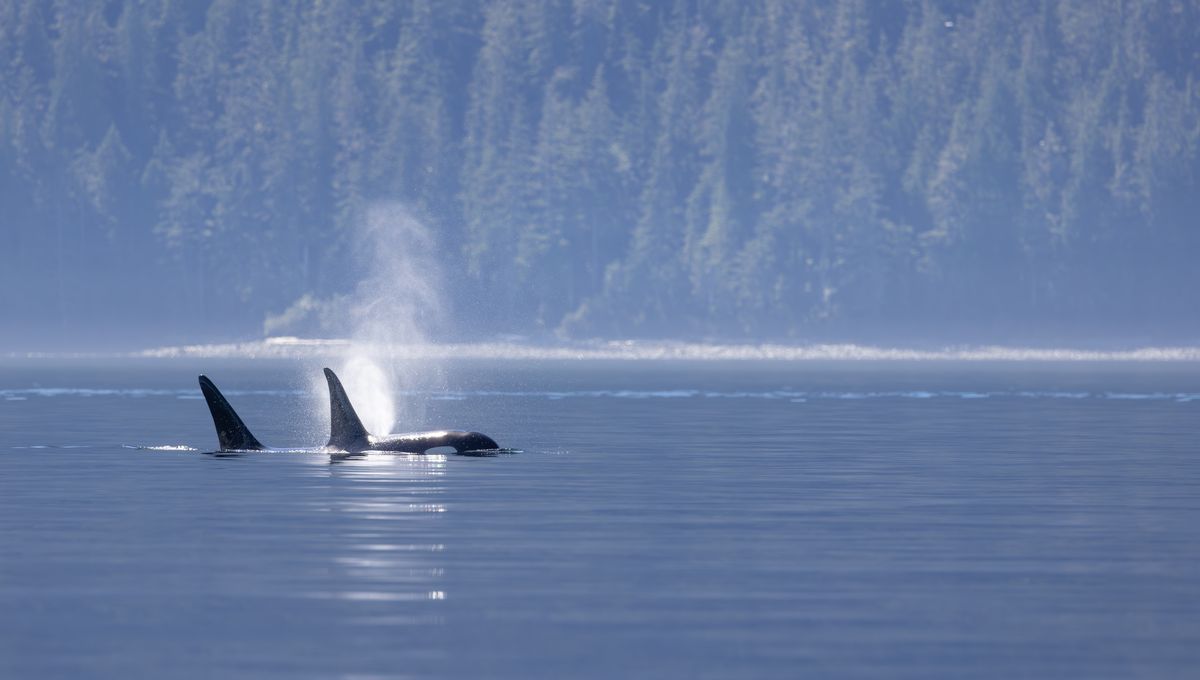
Could aquatic mammals, such as whales, orcas, and bottlenose dolphins, ever evolve to live on land again? It seems the chances of this are actually vanishingly small, as the adaptations that allow them to thrive in the water are more or less irreversible, representing an evolutionary threshold beyond which there can be little chance of returning (to land, that is).
Evolutionary transitions to distinct physical realms, such as from water to land and vice versa, are pretty rare in the history of life. At some point around 350 million to 400 million years ago, during the Permian-Triassic boundary, several lineages of fish dragged themselves out of the water and onto land for the first time. These little critters had the rudimentary forms of limbs, which gradually evolved into the four-limbed species (mammals, reptiles, and amphibians) we see around us today – known as tetrapods.
However, around 250 million years ago, some of these tetrapods thought “screw it”, and decided to return to the watery world their ancestors had abandoned. These animals eventually evolved to into a diverse range of clads, such as ichthyosaurs, whales, and penguins, among others, that were independently optimized to swim in water and thrive in this habitat.
But this toing and froing between the land and the water raises some interesting questions, as the transition to land only occurred once in the history of life on this planet, but the return to the water has happened multiple times. But why is this the case? Why haven’t those mammals that returned to the water retuned to the land again?
It might be tempting to think that evolution is a kind of limitless in its potential for allowing animals to adapt to their environments. We assume that, given enough time, a species could evolve to thrive in most environments – but this is not the case. There are limits, and it may be that these limits are set by evolution itself. In this instance, the thing that stops marine mammals from returning to the land again is that the adaptations that allowed them to swim can’t be reversed.
The idea that evolution is not reversible was first proposed by Louis Dollo, a 19th century Belgian palaeontologist, and has now become a law named after the chap. Dollo’s Law, or the law of irreversibility, states that once a complex trait is lost, it is not likely to be regained again in subsequent generations.
In 2023, researchers from Switzerland and Sweden put this irreversibility problem to the test. They examined over 5,600 mammal species to see if aquatic adaptations are irreversible and if they are related to relative body mass changes. They did this by separating thousands of species into four categories – those with no aquatic adaptations (fully terrestrial species), those with some aquatic adaptions though they are still mobile on land, those with limited locomotion on land, and those that are fully aquatic.
The team then modeled the evolution of aquatic adaptations across mammal lineages using what are called “phylogenetic comparative methods”, statistical techniques that use phylogenetic trees (evolutionary trees) to analyze how traits evolve across time. This allowed them to estimate the probability of evolving specific traits.
They found that there is a threshold between fully aquatic and semiaquatic species, that once this threshold is crossed, the aquatic adaptation becomes irreversible. This means that, prior to reaching this threshold, semiaquatic traits can be reversed, but it is limited. This is because the transition to aquatic environments is associated with multiple complex changes, which include an increase in body mass allowing aquatic mammals to retain heat, a shift to largely carnivorous diets that support their metabolism, as well as morphological changes to their skulls that enable feeding to operate in distinct niches.
The general result is that these adaptations may make these animals specialists in their watery worlds, but they also present substantial difficulties for them when competing against terrestrial species. Although it is theoretically not impossible for an aquatic mammal to evolve to re-return to land in the future, it is so unlikely that is may as well be.
Source Link: Could Whales And Dolphins Ever Evolve Back To Being Land Mammals?